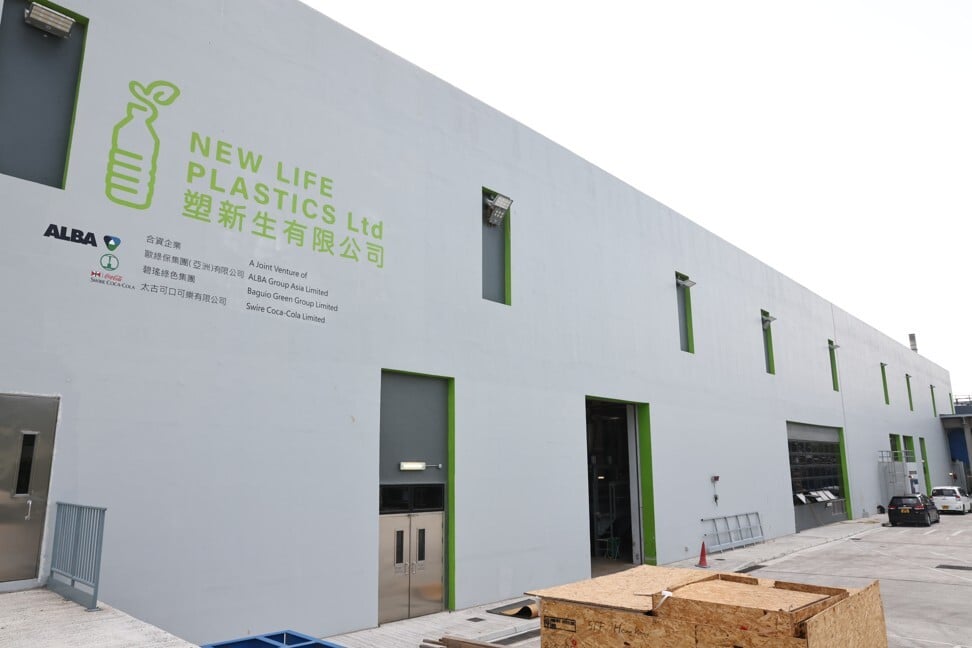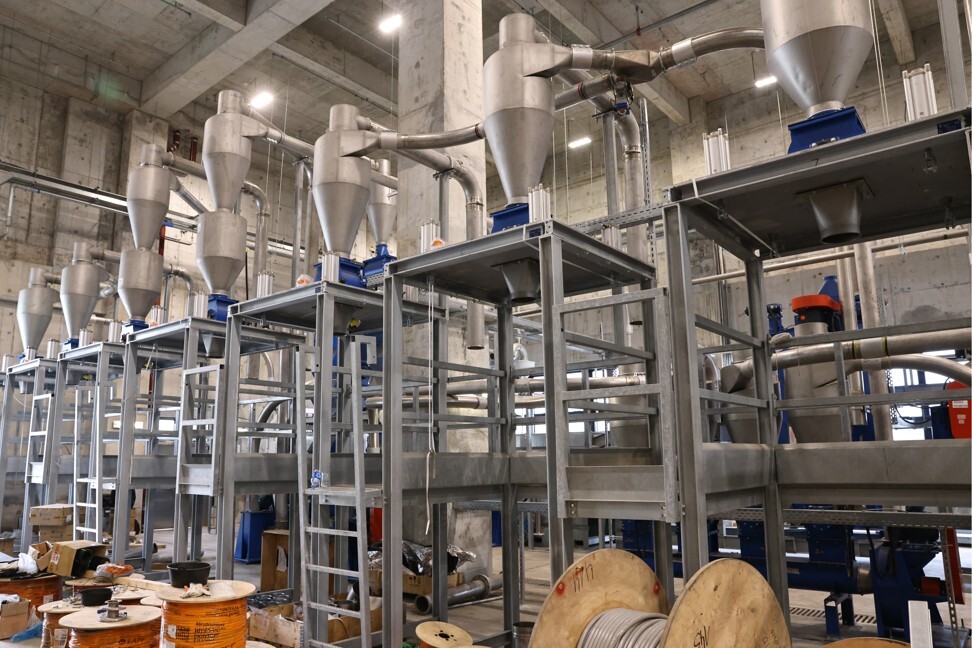
Sustainable plastic: start-up New Life Plastics to recycle a quarter of Hong Kong’s waste bottles each year
- Hong Kong start-up New Life Plastics will start operations at its 6,500-square-metre recycling plant in Tuen Mun early next year
- The stakes are high for the company as Hong Kong’s recycling rate has been flagging in recent years
Although Hong Kong remains at the early stages of implementing policy that encourages recycling of used plastic bottles, NLP is betting that its €10 million (US$11.6 million), 6,500-square-metre plant in Tuen Mun district will manage to break even in five to seven years after commercial operations start early next year.
“Today, I can assure you that our recycling plant, built with the best available and proven technology, can produce food-grade materials to be made into bottles or packaging, which can be recycled again,” NLP general manager Frank Schepers told the South China Morning Post.

Commissioning of NLP’s plant, now in its final stages of equipment installation, was delayed by around a year because of supply chain challenges caused by the Covid-19 lockdowns.
“Before NLP, we didn’t know where the plastic bottles that we put in the recycling bins end up,” Schepers said.
Schepers indicated that most of the city’s plastic bottle waste turn up in landfills because of the lack of channels to locally recycle, following mainland China’s decision in 2018 to ban imports of unprocessed solid waste.
Plastic waste made up a fifth of the city’s solid wastes in 2019, according to data from the Environmental Protection Department. Only 9 per cent of all plastic waste was recycled during that period.
From the start of this year, international shipments of most plastic waste are allowed only with prior written consent of both the importing and transit jurisdictions, under the Basel Convention international treaty controlling transboundary movements of hazardous wastes.
Consultation opens on new proposal to ban single-use plastics in Hong Kong
Located in EcoPark, the government-run recycling park, NLP’s facility expects 75 per cent to 85 per cent of its throughput to consist of polyethylene terephthalate (PET) drinks bottles. The remainder will comprise high-density polyethylene (HDPE) bottles, widely used for shampoo and detergents.
Through a 12-stage process handled by two separate production lines at the NLP plant, bales of waste bottles will be separated from impurities, crushed, cleaned, dried and broken into PET flakes and HDPE pellets. Subject to quality audits a few times a year, these will be sold in the international market.
The fully automated facility will be able to process 1.2 million PET bottles, weighing 30 tonnes, per day when it ramps up to a full 24-hour operation, according to Schepers. Some 5 million PET bottles are thrown out every day in Hong Kong.
The plant is expected to have 55 quality control, maintenance and cleaning employees when full operations start.
Hong Kong ‘must expand recycling efforts for charging scheme to work’
NLP’s shareholders have been “quite brave” to “pre-invest” in the venture, as Hong Kong’s plastic recycling policy is yet to mature, according to Nigel Mattravers, a joint venture representative at the company.
“We haven’t sat here waiting for all the legislation to come in place for the producer responsibility scheme,” Mattravers said. “We haven’t waited until the materials are already collected.”
The government has also launched community pilots for collection of waste plastics. A rebate of 10 Hong Kong cents has been proposed for each used bottle returned.

Meanwhile, NLP has signed letters of intent with several partners on plastic waste bottle collection and supply, said Schepers, adding that the company will sell PET flakes – a commodity – to bottling companies serving large drinks brands.
Demand for PET flakes has been brisk in Europe, where a minimum 25 per cent recycled PET content in drink bottles will be required by 2025, rising to 30 per cent by 2030. It stood at 11 per cent in 2018.

